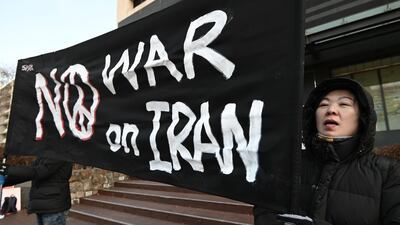South Korea will send a naval destroyer and 300 troops to the Strait of Hormuz, its defence ministry said Tuesday, after pressure from its ally the US in the face of tensions between Washington and Tehran.
Iran has been blamed for a series of attacks on shipping vessels in the strait, a strategic choke point for the world's oil trade, where the US has deployed a naval mission.
But the request put Seoul in a dilemma: it has had diplomatic relations with Tehran since the early 1960s and until last year Iran was one of the resource-poor South's key oil suppliers.
The defence ministry said Seoul had decided to "temporarily expand" the deployment area of its antipiracy military unit operating off the coast of Somalia to include the Arabian Gulf and the Gulf of Oman, which are linked by the Strait of Hormuz.
It would not be part of the US naval mission, it insisted — although two liaison officers would be sent to the US headquarters for "information sharing".
Seoul and Washington are in a security alliance but their relations have been strained by the Trump administration's demands the South pay billions of dollars more towards the costs of 28,500 US troops stationed in the country to protect it from the nuclear-armed North.
US Ambassador Harry Harris last week urged Seoul to join in the naval mission, saying "very few countries have a greater need" to take part as the South "gets 70 per cent of its oil supplies from the Middle East".
US President Donald Trump abandoned the 2015 deal curtailing Tehran's nuclear programme and imposed economic sanctions against Iran, prompting South Korean exports to the country to fall nearly 90 per cent last year.

